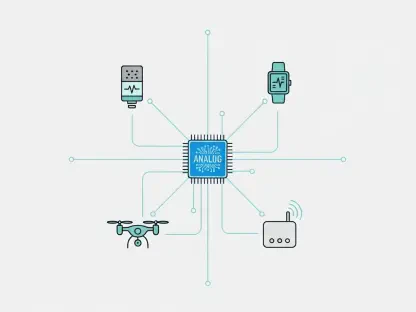The increasing use of generative artificial intelligence (genAI) in job applications is significantly contributing to a rise in hiring fraud, impacting both employers and genuine job seekers. Job seekers are leveraging sophisticated AI tools like ChatGPT to fabricate or enhance their employment credentials, posing a major challenge for companies attempting to distinguish between authentic and fraudulent applications. This surge in AI-driven deception is causing financial losses for businesses and creating additional hurdles for legitimate candidates in a competitive job market.
Proliferation of AI-Enhanced Resumes
GenAI tools are being widely adopted by job seekers to embellish resumes and cover letters, fundamentally altering the landscape of employment applications. This issue is particularly pronounced in the technology sector, where the prevalence of buzzwords and unnatural sentence structures makes AI-enhanced resumes more easily detectable. Joel Wolfe, president of HiredSupport, notes that AI-generated qualifications are prevalent especially in developer roles, causing substantial disruptions in hiring processes. What may seem like minor embellishments is leading to significant challenges for hiring managers, who must now scrutinize applications more meticulously to ensure their authenticity.
Employers are increasingly facing the task of differentiating between candidates who use genAI tools to truthfully represent their qualifications and those who resort to outright fabrication. The nuanced use of AI for resume enhancement complicates the hiring process, demanding that HR departments become more adept at spotting inconsistencies that may indicate fraudulent activity. As this trend continues, it reveals the need for more sophisticated tools and training to effectively manage and evaluate AI-generated resumes.
Rising Fraudulent Activities in Hiring
In addition to embellished resumes, institutions are witnessing a significant rise in deceptive practices throughout the hiring process. Cliff Jurkiewicz, vice president of Global Strategy at Phenom, highlights an increase in AI-assisted fraud, particularly during live remote or recorded interviews. Candidates are not only cheating during the application phase; they are also employing AI tools during interviews by reading scripted responses from a secondary screen or even having more qualified individuals take their place.
The usage of generative AI tools during interviews means that some candidates can effectively bypass the initial vetting processes, presenting challenges for recruiters who must ensure that the individual who interviewed is the same person who shows up for work. This growing trend alters the dynamics of interviews and necessitates the adoption of new strategies to verify candidate authenticity. Both live monitoring and advanced AI-based verification procedures may become integral to hiring processes as institutions aim to mitigate the risks posed by fraudulent applicants.
Admission of Resume Embellishment
Surveys have provided valuable insights into the extent of resume embellishment among job seekers, shedding light on a trend fueled by the proliferation of genAI tools. A StandOut CV survey revealed that a substantial 73% of U.S. workers would consider using AI to enhance their resumes. This statistic underscores the increasing reliance on technology for job application processes and signals a trend that is only expected to grow.
Moreover, a survey by Resume Builder found that 45% of respondents admitted to exaggerating their skills using AI tools during the hiring process. Surprisingly, notwithstanding these admissions, many employers remain open to the use of genAI for resume creation and cover letters, provided the content accurately reflects the candidates’ actual qualifications. This ambivalence from employers reveals an acknowledgment of the efficiency and practicality genAI can bring, even as it introduces new layers of complexity to applicant evaluation.
Increasing Sophistication in Fraudulent Strategies
The fraudulent methods employed by job applicants are evolving, becoming increasingly sophisticated over time. By 2028, Gartner predicts, up to a quarter of job candidates could be fake, highlighting a substantial rise in impostor candidates engaging in fraudulent activities post-hire. This projection exemplifies the growing threat posed by individuals who falsify their qualifications to secure positions, only to engage in malicious activities such as data theft or financial fraud once employed.
An alarming example involves North Korean IT workers who flood tech companies with fake resumes, often using stolen American identities and virtual private networks (VPNs) to mask their true locations. The U.S. Department of Justice has actively taken steps to curb these fraudulent activities, including indicting individuals involved and seizing assets linked to such schemes. This clearly illustrates the magnitude of the threat posed by increasingly sophisticated fraudulent strategies, calling for enhanced vigilance and more stringent verification measures among employers.
Legitimate Use of genAI in Job Applications
On the other hand, legitimate job applicants are also turning to genAI tools, underscoring a growing reliance on these technologies for various facets of the job application process. Gartner predicts that by 2027, a significant proportion of developers will be using AI coding tools, signifying a substantial shift in how job applications are prepared and submitted. This increasing trend points to the seamless integration of genAI tools into the mainstream job market.
According to senior analyst Emi Chiba, the ease with which job candidates can create tailored content using genAI tools has become a strong incentive for their widespread use. Chiba suggests that a majority of applicants might now be incorporating AI-augmented elements into their resumes and cover letters, potentially including reading pre-generated answers during interviews. This growing trend emphasizes the need for employers to adopt advanced techniques to discern authentic applications amidst a sea of AI-enhanced submissions.
Deepfake Technology and Hiring Fraud
The issue of deepfake technology adds another layer of complexity to the hiring process. Candidates are now using AI to alter their voice or appearance to disguise their identity or location, sometimes having a different individual conduct the interview on their behalf. This application of deepfake technology opens new avenues for sophisticated hiring fraud that are challenging to detect with traditional methods.
Jurkiewicz shares an anecdote of an employee in Texas who outsourced her work overseas to cheaper labor, managing multiple employers and earning substantial income with minimal effort on her part. Such instances underscore the urgent need for advanced technology capable of detecting and preventing these forms of fraud. As candidates and fraudsters alike employ more sophisticated tactics, the importance of leveraging equally advanced detection tools becomes paramount for employers.
Efforts to Combat AI-Driven Hiring Fraud
Despite the challenges posed by AI-driven hiring fraud, genAI also holds the key to potential solutions. Companies are increasingly developing and deploying AI agents designed to detect deepfakes and other fraudulent activities throughout the hiring process. This growing emphasis on advanced detection measures aims to mitigate the risks associated with AI-enhanced job applications.
Phenom’s plan to introduce an AI agent specifically for spotting deepfakes exemplifies proactive strategies being adopted to confront this issue. The ongoing tech arms race in hiring protocols highlights the necessity for continuously evolving measures to stay ahead of the sophisticated tactics employed by fraudulent candidates. Employers are recognizing the importance of investing in advanced technologies to ensure the integrity of their hiring processes.
Impact on Genuine Job Seekers
The growing use of generative artificial intelligence (genAI) in job applications is greatly contributing to a rise in hiring fraud, affecting both employers and genuine job seekers. Job applicants are using advanced AI tools like ChatGPT to falsify or embellish their employment credentials, creating a major challenge for companies trying to differentiate between real and fake applications. This increase in AI-powered deceit is causing financial losses for businesses and adding extra obstacles for honest candidates in an already competitive job market. Additionally, companies are now forced to invest more in verifying the authenticity of applications, which increases operational costs. Legitimate job seekers are finding it harder to stand out or even get their foot in the door due to the influx of polished but fraudulent applications. As AI technology continues to evolve, the risk of hiring fraud is likely to grow, demanding more sophisticated measures to ensure trust and integrity in the hiring process.









